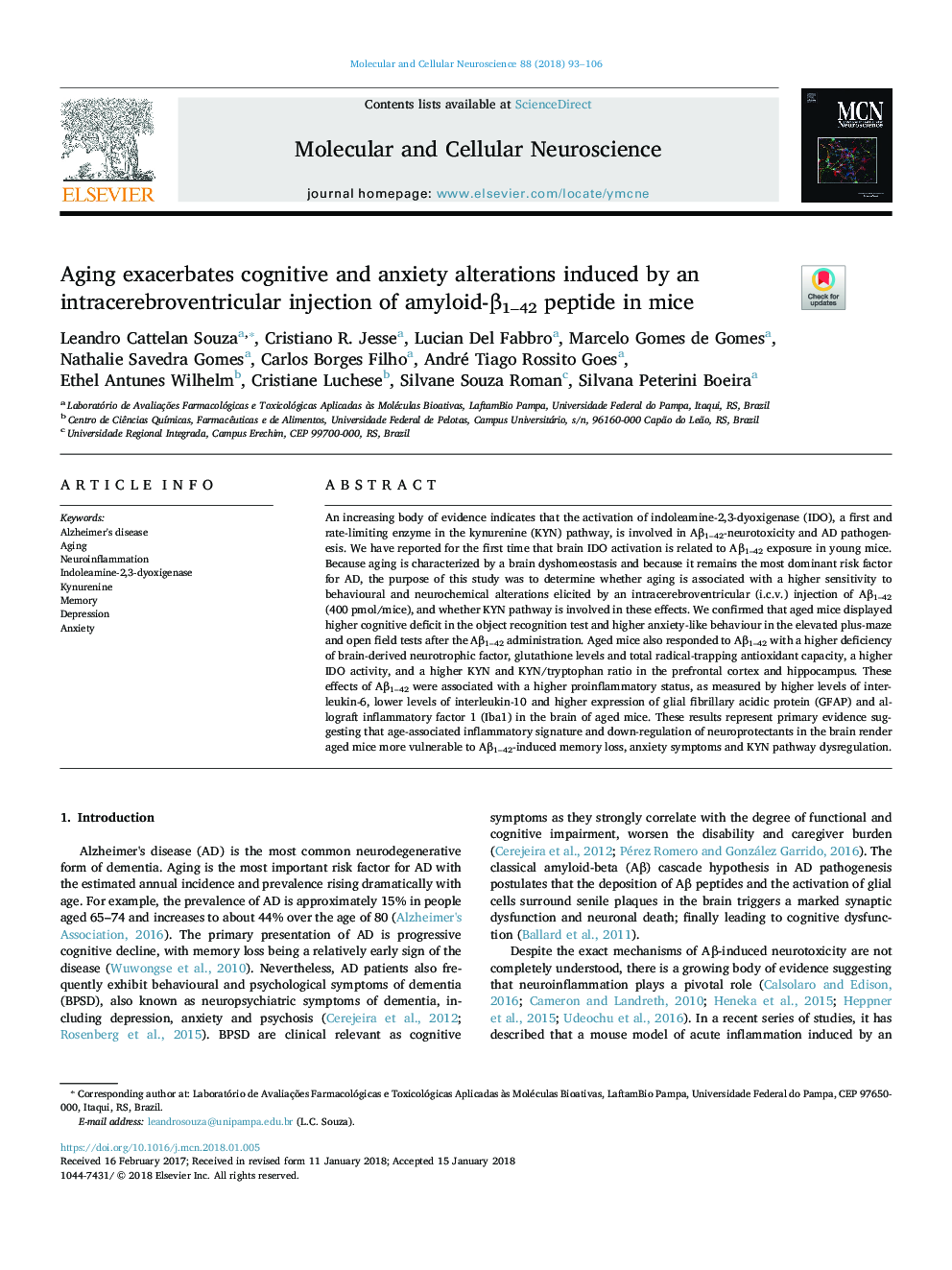| Article ID | Journal | Published Year | Pages | File Type |
|---|---|---|---|---|
| 8478372 | Molecular and Cellular Neuroscience | 2018 | 14 Pages |
Abstract
An increasing body of evidence indicates that the activation of indoleamine-2,3-dyoxigenase (IDO), a first and rate-limiting enzyme in the kynurenine (KYN) pathway, is involved in Aβ1-42-neurotoxicity and AD pathogenesis. We have reported for the first time that brain IDO activation is related to Aβ1-42 exposure in young mice. Because aging is characterized by a brain dyshomeostasis and because it remains the most dominant risk factor for AD, the purpose of this study was to determine whether aging is associated with a higher sensitivity to behavioural and neurochemical alterations elicited by an intracerebroventricular (i.c.v.) injection of Aβ1-42 (400â¯pmol/mice), and whether KYN pathway is involved in these effects. We confirmed that aged mice displayed higher cognitive deficit in the object recognition test and higher anxiety-like behaviour in the elevated plus-maze and open field tests after the Aβ1-42 administration. Aged mice also responded to Aβ1-42 with a higher deficiency of brain-derived neurotrophic factor, glutathione levels and total radical-trapping antioxidant capacity, a higher IDO activity, and a higher KYN and KYN/tryptophan ratio in the prefrontal cortex and hippocampus. These effects of Aβ1-42 were associated with a higher proinflammatory status, as measured by higher levels of interleukin-6, lower levels of interleukin-10 and higher expression of glial fibrillary acidic protein (GFAP) and allograft inflammatory factor 1 (Iba1) in the brain of aged mice. These results represent primary evidence suggesting that age-associated inflammatory signature and down-regulation of neuroprotectants in the brain render aged mice more vulnerable to Aβ1-42-induced memory loss, anxiety symptoms and KYN pathway dysregulation.
Related Topics
Life Sciences
Biochemistry, Genetics and Molecular Biology
Cell Biology
Authors
Leandro Cattelan Souza, Cristiano R. Jesse, Lucian Del Fabbro, Marcelo Gomes de Gomes, Nathalie Savedra Gomes, Carlos Borges Filho, André Tiago Rossito Goes, Ethel Antunes Wilhelm, Cristiane Luchese, Silvane Souza Roman, Silvana Peterini Boeira,
